Law on legal status of missing persons marks five years: it functions but has problems – human rights defenders
The Verkhovna Rada adopted the Law “On the Legal Status of Missing Persons” five years ago. The law is in force, but a number of its provisions are implemented not properly. In particular, social assistance is not provided to relatives of missing persons. Also, the register of persons gone missing under special circumstances has just started to work and is still functioning with difficulties. DNA samples of relatives of missing persons are processed untimely and improperly, and procedures for the identification of bodies and remains conducted by law enforcement agencies and expert institutions are very long-lasting.
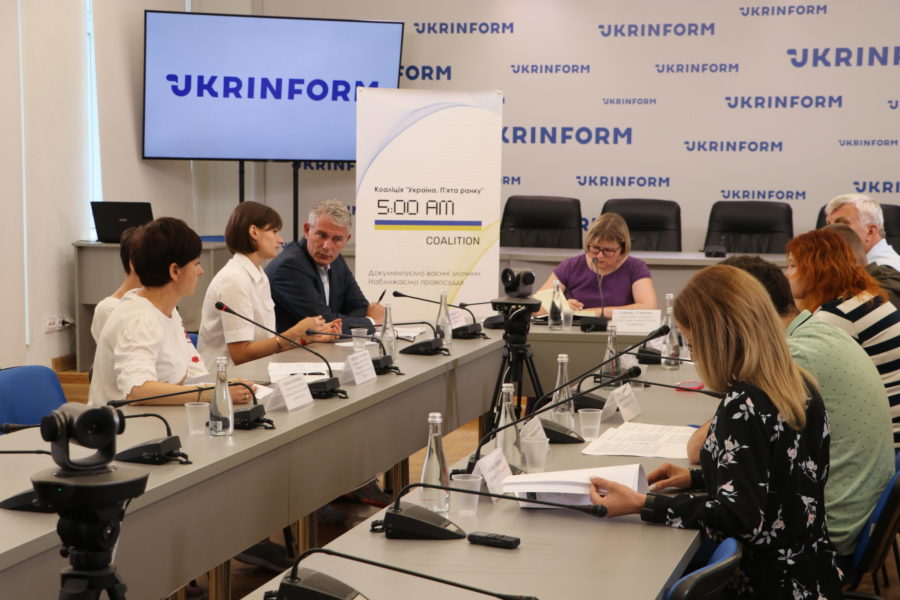
The issue was discussed during a public discussion in Kyiv organized by Ukraine 5 AM Coalition, Human Rights Centre ZMINA, and Media Initiative for Human Rights.
As Alena Lunova, advocacy director at Human Rights Centre ZMINA, noted, usually the search for missing persons in wartime takes place already after the end of the hot phase of the armed conflict, so the adoption of the law on missing persons in 2018 can be considered a breakthrough because Ukraine started doing it during the war and build an appropriate system that meets international standards.
According to Oleh Kotenko, the Commissioner for Persons Gone Missing Under Special Circumstances, the law generally functions. In May 2023, the unified register became operational, which allows accumulating data on persons gone missing under special circumstances. Among the shortcomings, the cooperation between the various institutions involved in the search process has not yet been fully established, due to which part of the coordination takes place in manual mode. However, according to Kotenko, solving this is a matter of time.
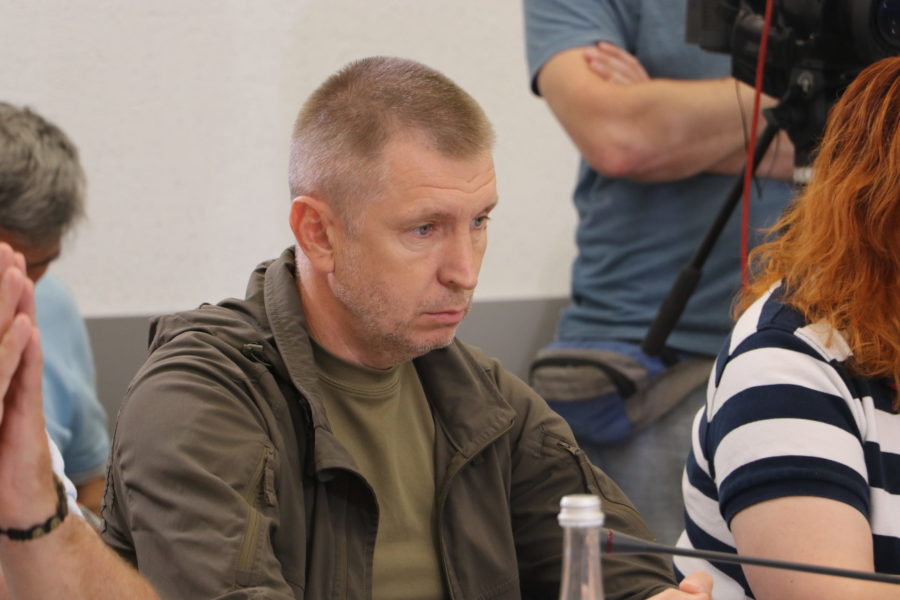 Oleh Kotenko
Oleh Kotenko“Since 2014, we have been looking for 65 soldiers who went missing, of which there is a DNA match for 28 people. Relatives do not agree with this, so we have a problem here. We still have more than 300 people whose whereabouts are unknown to us. But at the moment [after the start of the full-scale war], we have completely different numbers: we have more than 24,000 people in the register of missing persons which was launched at the beginning of May 2023. We have already found more than 8,000 people from this list. About 60% of them are alive and are in captivity. We know their whereabouts, many have already returned home. But, unfortunately, some people died. We also have about 7,000 people whose whereabouts we do not know at all,” Kotenko said.
“The law is useful, but several important provisions in it remain unimplemented,” said Oleksandr Kononenko, representative of the Ukrainian Parliament Commissioner for Human Rights in the system of security and defense sector agencies. In addition, according to him, there are certain problems related to the functioning of the Unified Register of Missing Persons, which are revealed during cooperation with the relatives of the missing persons.
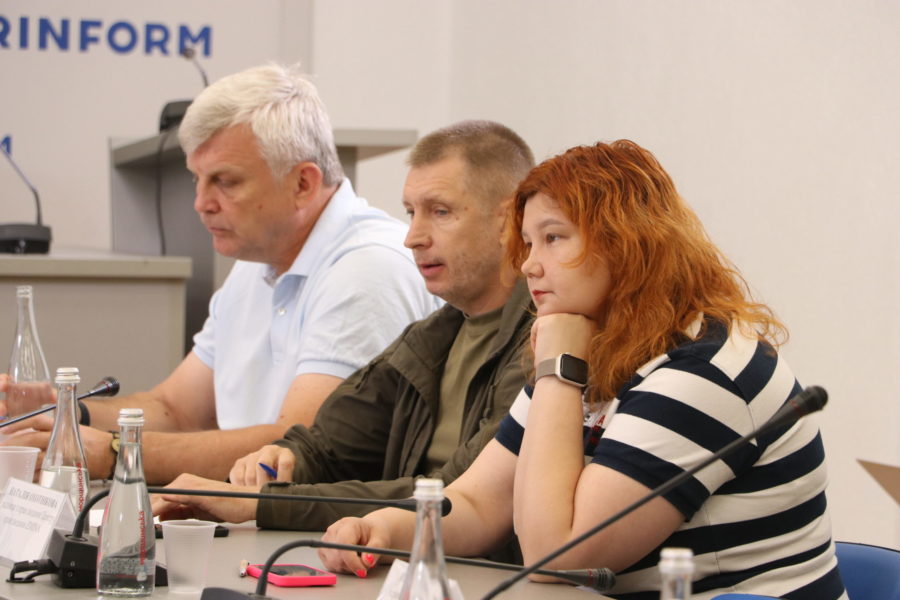
“Thanks to the register, relatives can receive an extract, on the basis of which they can apply to the Pension Fund to receive a pension in connection with the temporary loss of a breadwinner or to receive a missing person’s certificate. To date, many cases have been recorded when relatives turned to the National Police, have extracts from the Unified Register of Pretrial Investigations but receive answers from the Ministry of Internal Affairs that their relatives have not been entered into the register of missing persons,” Kononenko said.
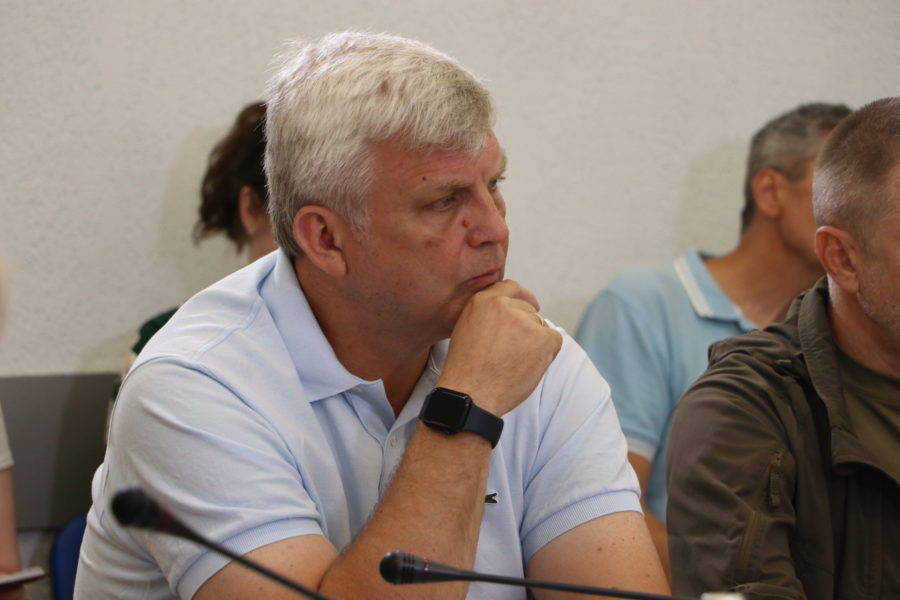 Oleksandr Kononenko
Oleksandr KononenkoAlso, according to his data, there are cases when a person is entered into the register as missing, and then the ICRC verifies that the person is in captivity.
“How does the status of this person change? The law actually gives no answer,” he added.
Also, according to Kononenko, the issue of social assistance to the missing civilians who, unlike the military, “do not have any organizational structure” behind remains unsettled.
Olena Bieliachkova, the coordinator of groups of families of captives at the Media Initiative for Human Rights, also believes that it is worth synchronizing the filling of the Unified Register of Missing Persons so that relatives who have documents on criminal proceedings launched by investigators and other documents indicating the disappearance of a person can also receive an extract to confirm this status of their relative. After all, this document is the only one that gives the right to exercise all rights, benefits, and guarantees for the families of the missing.
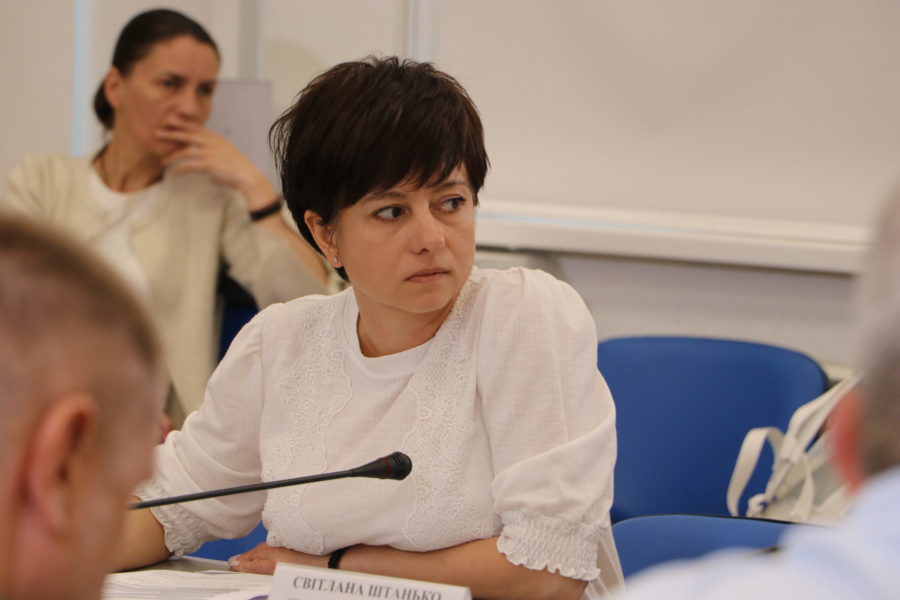 Olena Bieliachkova
Olena Bieliachkova“Families have a huge problem with DNA data, processing this data, and entering them into the register. Often unidentified service members are buried as unknown. After that, the DNA data of living relatives are entered into the database, and further examination requires a separate exhumation of a body and, accordingly, new problems and actions for a person who is already stressed,” the human rights activist added.
Svitlana Shtanko, the wife of missing Serhiy Shtanko, a senior sergeant of the 72nd brigade, shared her own experience of how the law works.
“The biggest problem is that, according to the law, we have the right to receive reliable information about the course and results of the search. But this information needs to be collected piece by piece, and it is very difficult. It is necessary to write requests to all structures. In the National Police, our cases are transferred according to territorial affiliation, and there they get stuck because one investigator may have 200-300 cases, and in such a case, there can be no talk of investigation. Perhaps, if the case had remained in Kyiv region, more attention would have been paid to the search for my husband,” Svitlana Shtanko complains.
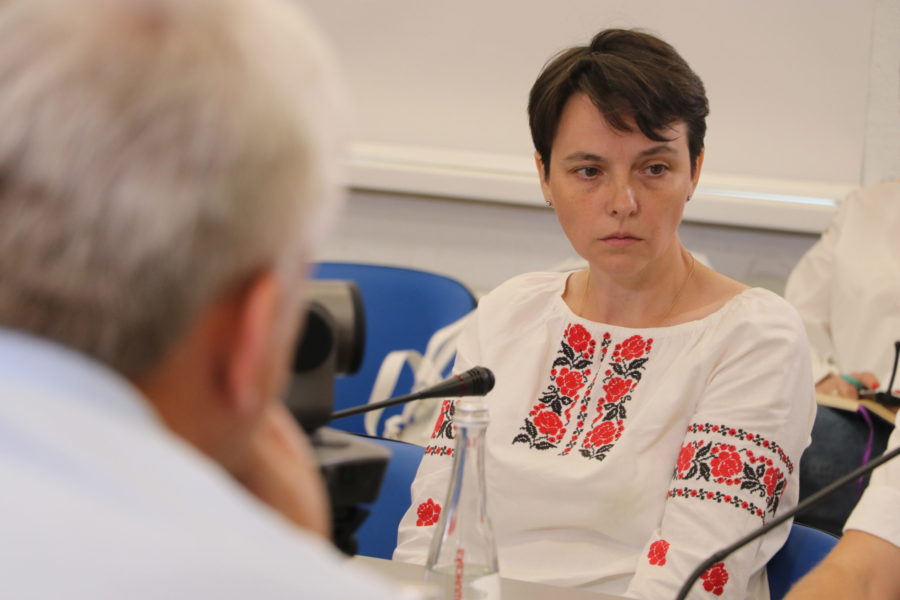 Svitlana Shtanko
Svitlana ShtankoThe significance of the law for society was highly appreciated by Matthew Holliday, Europe Program Director at the International Commission on Missing Persons. But, in his opinion, the law still needs to be finalized.
Holliday emphasized that most of the provisions of the law indicate a humanitarian search for missing persons but do not pay due attention to the investigation into crimes related to disappearances. And therefore, justice is not fully established.
“Mass graves are the places where crimes were committed, they may contain a lot of information about the circumstances of the commission of such crimes. It is important for the families of the missing to have information about the fate of their loved ones, but it is also extremely important to ensure the right to justice. Because during the removal of the remains, certain evidence may be disturbed, which will later be admissible in criminal proceedings,” Holliday added.
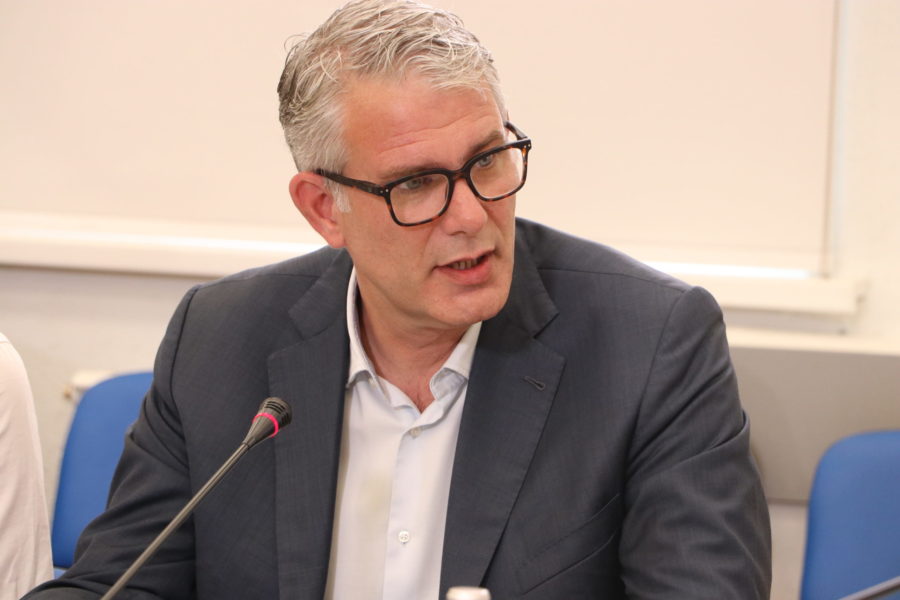 Matthew Holliday
Matthew HollidayZMINA human rights adviser Natalia Okhotnikova said that currently Article 438 of the Criminal Code of Ukraine on violations of the laws and customs of war is actually applied to enforced disappearances committed within the armed conflict.
“In addition, this leads to the fact that two articles of the Criminal Code (Article 146-1 – enforced disappearance and Article 438 of the Criminal Code – violation of the laws and customs of war) actually duplicate each other, confusing the already complex situation with enforced disappearances of civilians. Moreover, during the collection of information on enforced disappearances and arbitrary detentions of active citizens, we got acquainted with several excerpts from the Unified Register of Pretrial Investigations in which it was indicated that criminal proceedings are conducted under Article 115 of the Criminal Code of Ukraine – “Premeditated murder”, as was done in cases when a person went missing under unknown circumstances. And while the law enforcement agencies determine whether the disappearance was part of a crime, the proceedings are carried out under this article of the Criminal Code,” Okhotnikova added.
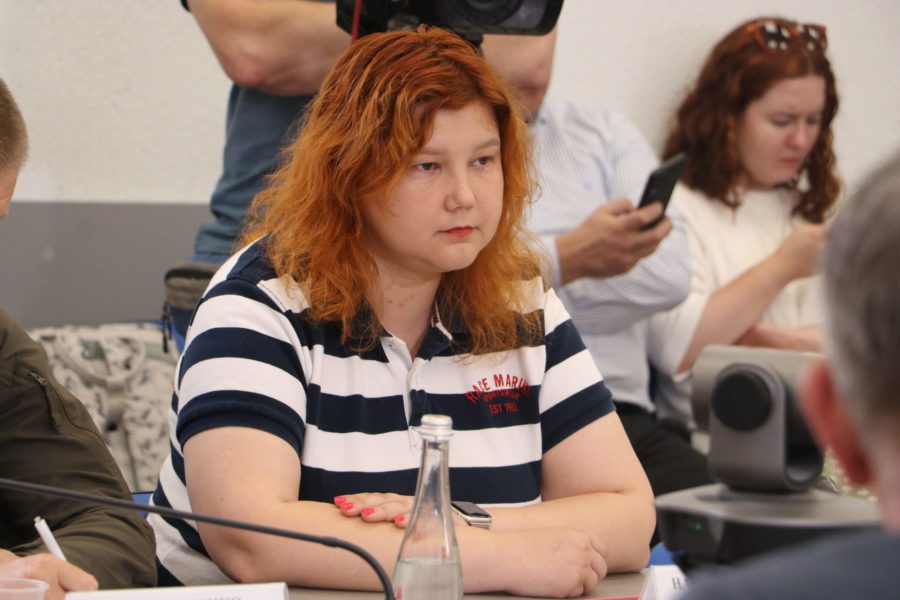 Natalia Okhotnikova
Natalia OkhotnikovaAlena Lunova spoke about problems with payments to the affected families from the Pension Fund of Ukraine:
“The Pension Fund does not pay pensions due to the loss of a breadwinner within the scope of the law. That is, there is a norm, but there is no implementation. They are waiting for some provision on the exchange of information with the registry, and while this is happening, people do not get help.”
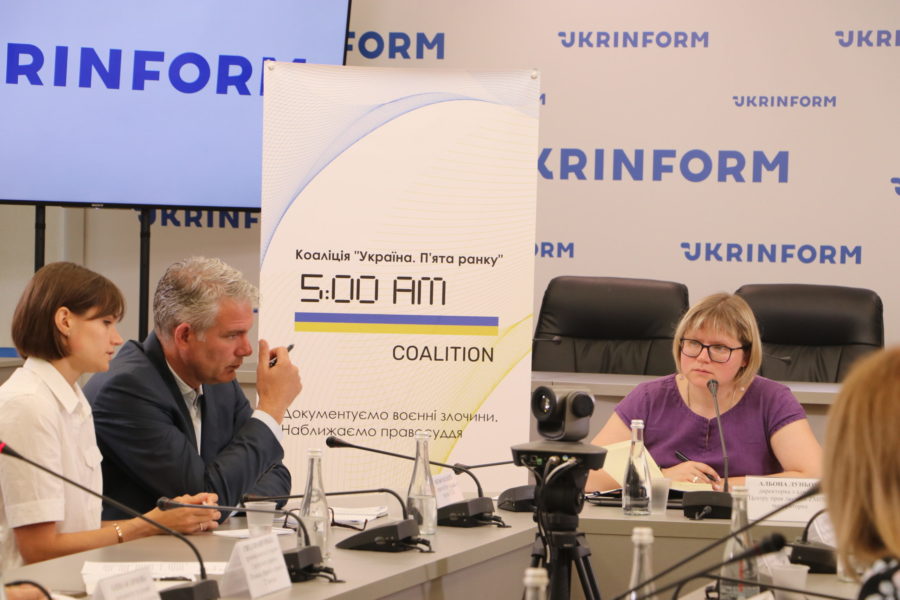
Watch the discussion “Law on the legal status of missing persons marks five years: Is there progress?” at the link.
Photo credit: Iryna Ivanchenko / ZMINA
If you have found a spelling error, please, notify us by selecting that text and pressing Ctrl+Enter.















